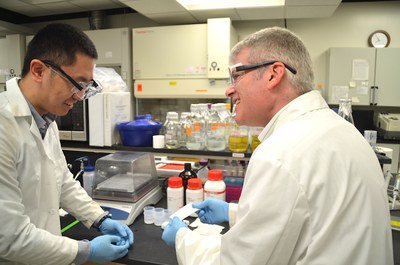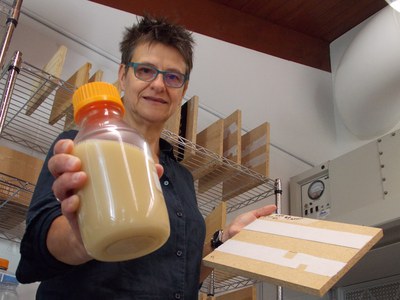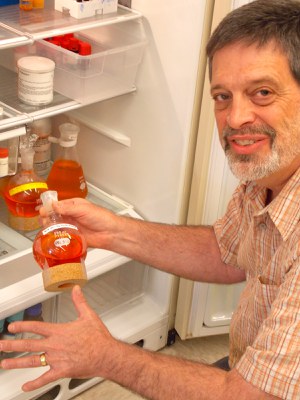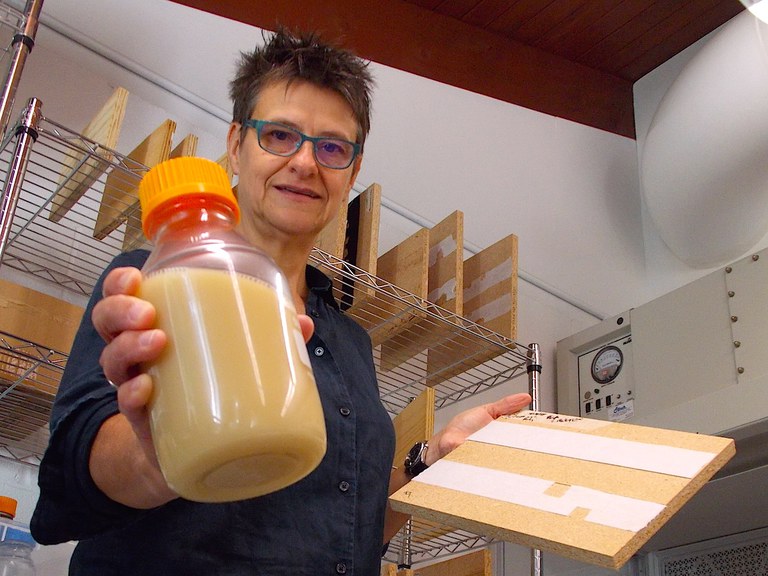Several researchers are working to bring their discoveries to market.
Dr. Nina Jenkins, an entomologist and expert on safe pest-control methods, discovered that a formulation made from fungal spores effectively kills bedbugs.
Now, Jenkins is CEO of ConidioTec -- founded with Dr. Giovani Bellicanta, her business partner and a post-doctoral scholar in microbiology.
Their product, Aprehend, is expected to reach the market in Fall 2017, following EPA approval in Spring 2017. It will be sold to licensed pesticide applicators.
Dr. Troy Ott, professor of reproductive physiology, discovered a blood test to determine whether insemination of a dairy cow failed or succeeded. If Ott, professor of reproductive physiology, can bring that test to market, it is likely to save farmers a lot of money and valuable time.
To commercialize that technology he'll need field test data validating the accuracy and affordability of the test.
Dr. Jeffrey Catchmark, associate professor of agricultural and biological engineering, discovered a promising, new medical foam to stop bleeding that can safely dissolve in the body.
Catchmark is collaborating with Dr. Scott Armen, chief of trauma, acute care and critical care surgery at Penn State Hershey College of Medicine.
They have all won Research Applications for Innovation -- "RAIN" -- grants to help bring their products to market.
Since 2013, the RAIN program has awarded a total of $586,941 to 14 projects showing commercial promise. E&I's 2017 RAIN grant winners.

The RAIN grant program is the college's first of its kind. The "proof of concept" hurdle is a key step in commercializing any new technology or product.
"This is exactly what the RAIN grant program was designed to encourage. The competitive pool highlights the potential to advance economic development through research in our college," says Dr. Gary A. Thompson, the college's associate dean for research and graduate education.
A proven entrepreneur and alumnus reviews each selected proposal, then becomes a mentor for the faculty researcher. The Penn State Research Foundation provides a one-to-two match -- $25,000 for every $50,000 from the college.

Past RAIN winners include InterSeeder Technologies. ConidioTec and InterSeeder Technologies both went on to win a total of $52,500 in first-place awards in Ben Franklin's TechCelerator Program competition.
"We're leveraging the potential of the entrepreneurial ecosystem," says Dan Azzara, Director of Entrepreneurship & Innovation. That group includes Penn State's Office of Technology Management, PSRF, The Small Business Development Center and the Ben Franklin TechCelerator Program, notes Azzara.
To help faculty commercialize, E&I also hired Scott Welsh as part-time (one-quarter) of a new entrepreneur-in-residence position. Welsh's company, Fieldstone Innovations, specializes in commercialization strategy for new ventures and technologies in agriculture, biotech and energy.

Food Science Professor Dr. Gregory R. Ziegler hopes to commercialize a brilliant orange made from avocado pits as a natural food coloring. (Photo by Lisa Duchene)
Social Media

Social Media



